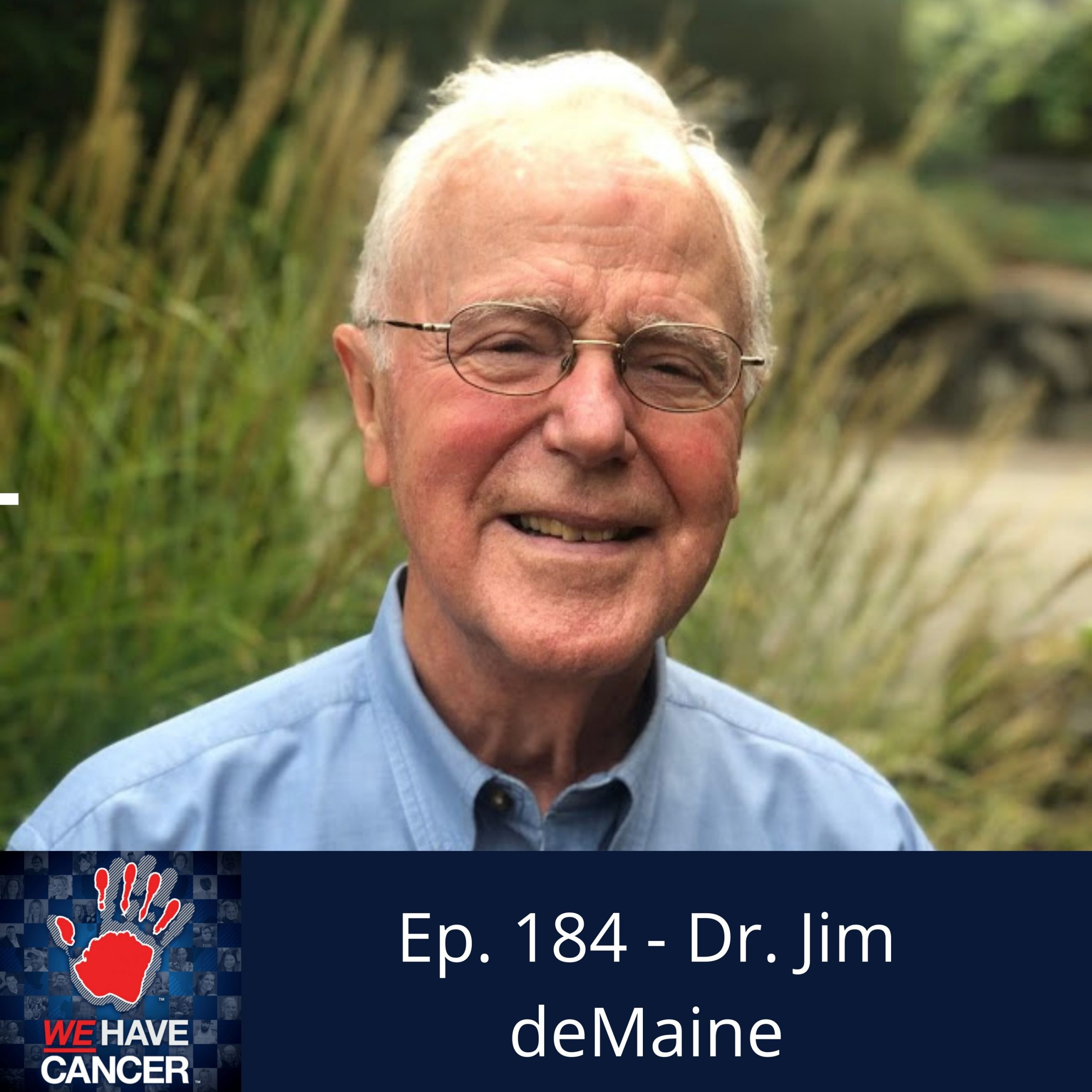Aug 24 2021 33 mins 1
On this episode of WE Have Cancer, author and veteran physician Jim deMaine chats with Lee about facing death with peace and comfort. Dr. deMaine shares his knowledge on hospice and palliative care and the rights every patient should be informed on in regards to medical care at the end of their life. He also provides thoughtful advice for how patients and their family members can best prepare for their final days.
Guest Biography:
Dr. Jim deMaine is a pulmonary and critical care specialist passionate about educating folks about the options they face towards the end of their lives. He is the author of Facing Death: Finding Dignity, Hope and Healing at the End, in which he shares his wisdom and field experience to explore common questions and anxieties his patients have experienced in their final days. He does not shy away from conversations about the role of spirituality, leaving a moral legacy, cultural traditions, and even conflicts between patients and their doctors.
Table of Contents:
- Saying the Words "Death" and "Cancer"
At the start of the show, Lee asks why a pulmonary care doctor decided to write a book on death. When Dr. deMaine was training as a physician in the 1960’s, he says they were trained to avoid talking about death or even using the word “cancer,” and he knew he wanted to change that.
- A Patient's Rights at the End
How do practitioners let their patients know that they have the right to make determinations about the kind of care they’d like to have at the end of their lives, and how can their doctors inform them about technologies available to them? Dr. deMaine discusses the many rights and conversations patients can, and should, be having with their doctors about end-of-life care.
- How to Put Families More at Ease
Families feel better about conferences when the doctor listens more, allowing them to feel more understood, explains Dr. deMaine. He also talks about some touching notes and feedback he’s received over the years from patients and their families that have helped to teach him how best to comfort and inform loved ones.
- Leading the Conversation to Discuss Death
Lee asks, why is what Dr. deMaine does “out of the ordinary” compared to standard practices of physicians in general? He shares about an app created for doctors called Vital Talk that coaches doctors on how to listen and approach these kinds of discussions, rather than sweeping them under the rug. There’s even a COVID-specific part.
- Learn about Hospice Before Needing Hospice
Dr. deMaine says patients should be informed about hospice options prior to needing hospice care themselves. Often, he says, people wait too long to consider hospice. How can patients begin to think about that level of special care earlier on?
- Benefits of Hospice Care
More than 50% of cancer patients receive hospice care at the end of their lives, and the data shows that people that enter hospice care have longer lives. Dr. deMaine admits that entering into hospice care is “quite a shift,” and is a decision that should be carefully considered.
- Palliative Care vs. Hospice
What’s the difference between palliative care and hospice? Dr. deMains says palliative care is a specialty that means “relief of suffering,” and palliative specialists work with both hospice and non-hospice patients. It’s a big picture, more coordinated approach to relieving suffering and bringing in more comfort to patients with serious and terminal illnesses.
- Dying with Peace and Comfort
Lee asks Dr. deMaine to explain the fine line between physician assisted suicide (or medical aid in dying) and helping a patient die in comfort. He says that when the intent is to relieve suffering, there are many options and medications to help provide comfort in a patient’s final days or hours. In areas where medical aid in dying is legal, Dr. deMaine explains what the process can look like for patients that do make that choice.
- Approaching a Terminal State: What Patients Should Know
Dr. deMaine says he wish more patients knew they have a right to request palliative care, and they a right to have an advocate with power of attorney to speak on their behalf regarding healthcare. He believes they should be thoroughly informed about hospice care. And lastly, they should think about their loved ones and pray for a peaceful death.
- Advice for Family Members Providing Comfort
Dr. deMaine shares that his father was a family physician, and he would always say "the answer is L-O-V-E." For loved ones, he advises simply holding their hand, being with them, playing their favorite music, and looking at pictures. Spend time together to bring comfort and peace.
Links mentioned in the show:
Get Dr. Jim deMaine's Book - Facing Death: Finding Dignity, Hope, and Healing at the End
Support the Child of the Month; Charlie - https://wehavecancershow.com/charlie
Subscribe to the “WE Have Cancer” Podcast
Follow WE Have Cancer on Social Media:
Like our Facebook page
Follow us on Twitter
Follow us on Instagram
